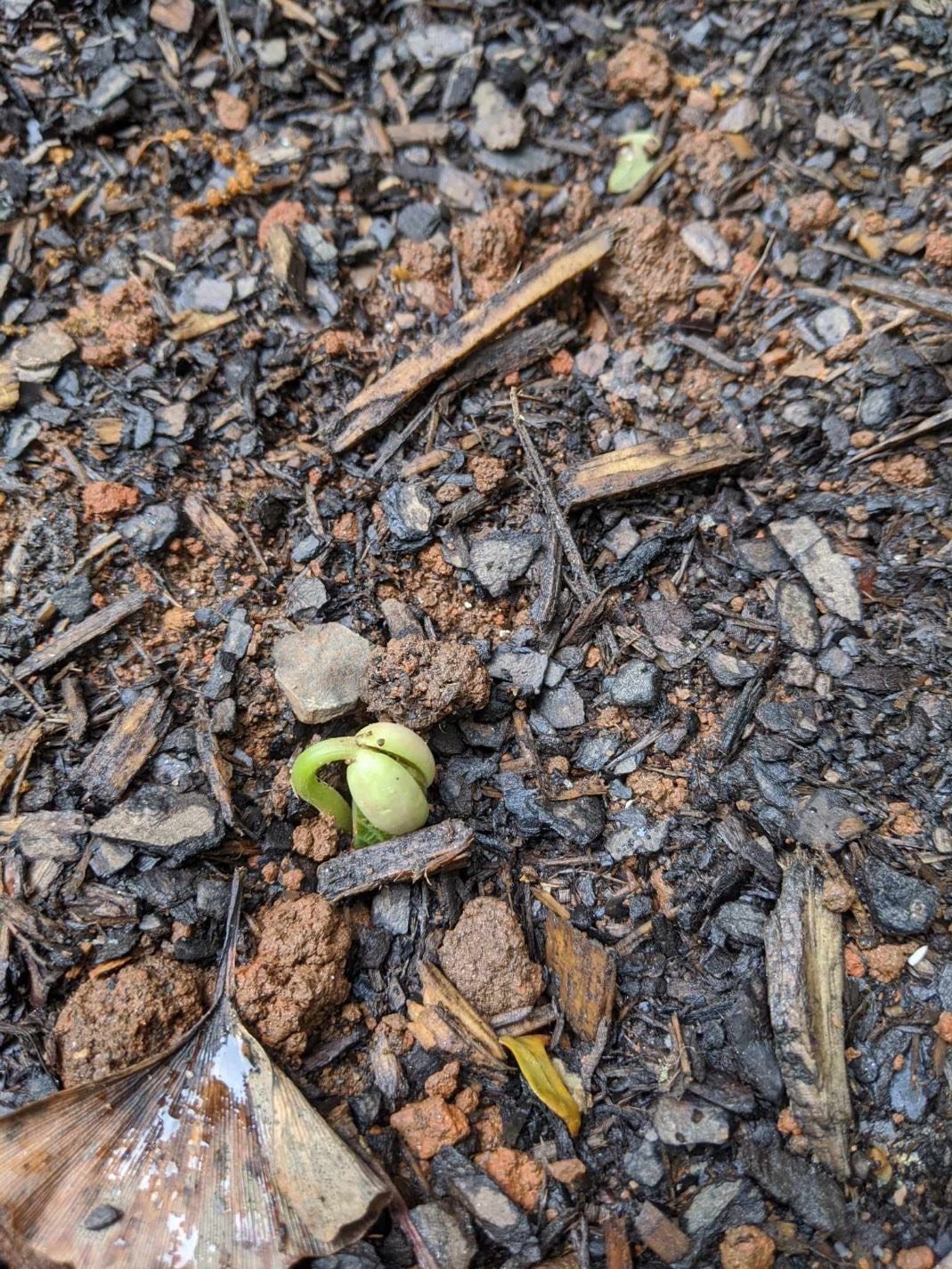on The Parable of the Sower (*)
In the opening phase of both the Distance Learning Program and now in the "Knowing Christ" program, our Seminary directors have brought us to work with the story of the Sower and the Seed. In his teaching, Jesus offered explicit explanation of this parable alone, “and he said to them, ‘Do you not understand this parable? How then will you understand all the parables?’” This story and its exegesis has thus been classically relied upon as the key to all of the parabolic teachings.
The seedling struggling to fruit against predation, starvation, and competition can be disconcertingly humble in comparison to other imagination of the Word. There seems a chasm between this presentation of the Word and others such as the all-triumphant King of Kings. This glory-gulf between the seedling and the King of Kings holds precisely that depth and richness that the seed needs in its soil. While sharing space in person with my fellow seminarians earlier this year, one of us in particular came to our circles with pages of notes and a dedicated spirit to plumb this depth. It came up day after day, and became part of the skeleton that structured our time together. I'm grateful for the way she brought the spirit of inquiry and held it for us, allowing her work to shape all of our attention.
In my own approach, my intellectuality desires to take hold of Jesus' explanation. I hear promised a key to the mysteries of the Parables, and I desire to have it. My attitude feels like a certain merciless kind of logic, one that will seize a thing and make it mine. Of course I desire this perfect understanding: it is the fruit of Knowledge all over again.
He says: “The sower sows the word.” I read: To interpret the image, ‘the seed’ shall be defined as identical to ‘the word’.'Then the next verse seems to place the hearer of the word precisely: “...when they hear, Satan... takes away the word that is sown in them.” I read: The ‘soil’ shall be defined as the ‘hearer of the word.’ The image is neat and logical. The seed is one clearly defined thing, and the soil is clearly another. Having set this up, Jesus proceeds to say, “And these are the ones sown on rocky ground: the ones who, when they hear the word...” Suddenly the ones sown are simultaneously the ones who hear. Jesus’ explanation immediately escapes the grappling hold of my logic and breaks free. A is not just A but also B.
Broken free, the image takes position in the wrestling and grabs hold of me, “and they have no root in themselves...” I habitually read prepositions like ‘in themselves’ as nearly meaningless archaicism, but my grappling has now prepared me to interrogate the phrase in a new way. Now it seems the speaker specifically means to say the seed and the soil are a co-being: the seedling has no root in itself, for itself is also the soil. Without each other, there will not be fruit.
Here lies the root of the gap between the seed-image and the king-image. To suggest that the word needs the human being in order to bear fruit could seem disrespectful to the sovereignty of the King of Kings riding victoriously forth. The seed and the King - both symbolize the Word, but seem so utterly counter to each other in their sense of dependency. However, viewed from the bottom-up, who other than their subjects can recognize a king? And this King defines themself by the nature of their subjects, who themselves are Kings. In feeling, this name holds the same recursive-dependency quality as the seed and the soil. They indeed symbolize the same nature.
An individual sowing of the seed into a particular ground cannot be logically reduced to ‘the word being heard by such-and-such a person who is represented by the quality of the ground,’ for the person is also the seed. Each sowing as an event represents the interrelation of various qualities of the complex being to itself. This story describes relationships, and the logical-seeming action of assigning one part of the image a clearly bounded definition destroys the more ethereal quality of that part’s relation to the other parts of itself. To really follow Jesus’ explanation, my wrestling logic must cede some authority to my inner poet.
The poet’s stock in trade is contradiction: flouting definition, glorying in the use of what logic would call lies - to communicate from the realm where beauty and truth coincide. Now I find myself in meditation with the parable instead of study. I hold many understandings in semi-contradictory tension, as mutually as I can manage. The question is richer soil than the answer. Who is the sower, the gardener? Sitting in this place with a deeply carved question, unflinchingly offering gentle attention, the feeling of understanding reaches out to touch me.
Jacob gained a blessing once by grappling in the night. How shall we go about wrestling with God?
(*) Note: All quotes are from the English Standard Version of The Gospel According to Saint Mark, Chapter 4.
Our Author: Douglas Jasper Doise, Knowing Christ student,
is a follower of Jesus Christ by way of the Christian Community.
He enjoys preparing from-scratch meals for large and small communities alike, and prefers to believe that his writing style has improved since high school.
Whatever it is, the way you tell your story online can make all the difference.





